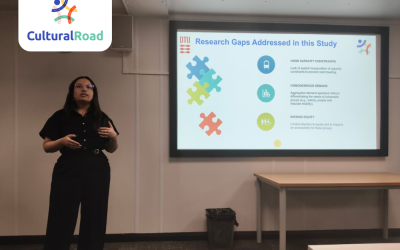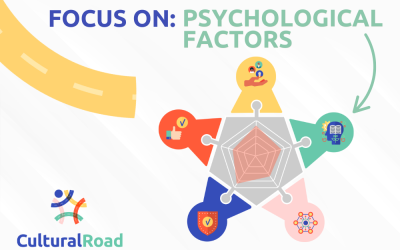As new solutions in the field of Connected, Cooperative and Automated Mobility (CCAM) emerge, ensuring their acceptance by users is essential to support their uptake and improve mobility for all, especially for more vulnerable user groups. To help make sure that new mobility services are equitable and beneficial to everyone, CulturalRoad has identified five pillars of mobility equity, each explored in this series of articles. The Acceptance pillar seeks to understand users’ perceptions, needs and concerns related to CCAM.
What does acceptance mean in CCAM?
Many multidimensional attitudinal and sociodemographic factors impact user acceptance of CCAM solutions. The CulturalRoad Acceptance pillar aims to comprehensively identify and quantify these factors, with particular attention to those that affect vulnerable user groups, which include people with limited mobility, people who live in rural regions or the urban core, and those with low incomes. By understanding the needs of these target user groups, CulturalRoad strives to ensure that CCAM implementations is tailored to the individual and unique concerns of each user group to maximise CCAM uptake and minimise inequalities in CCAM use.
The project partners reviewed existing expert studies that have analysed people’s preferences towards automated vehicle technologies. They identified key influential attitudinal factors, including social norms, attitudes towards technology including safety, trust, control/autonomy, familiarity and experience, technology literacy, and performance and convenience. The important sociodemographic factors have been found to include age, gender, education, employment, income, ethnicity, household size, and mobility experiences.
Measuring acceptance through the CulturalRoad travel study
As CCAM technologies are still new, the Acceptance pillar developed a travel survey which will be disseminated across all project pilot cities to obtain a realistic and accurate understanding of acceptance attitudes across the vulnerable user groups. Designed by the Technical University of Munich (TUM), which is leading the work on the Acceptance pillar, together with the Technical University of Denmark (DTU), the survey will be disseminated to the public in the CulturalRoad demonstration sites through collaboration with the local partners in Oxford in the United Kingdom, Karlsruhe in Germany, Barcelona in Spain, Eilat in Israel and Ljubljana in Slovenia.
The survey includes questions that directly cover the factors influencing user acceptance, along with hypothetical scenario-based experiments on travel choices. The travel choice experiments present respondents with four travel mode options: private cars, public transport, private/shared autonomous vehicles in the form of ride-hailing taxi services, and shared autonomous shuttle cars. Each mode has unique attributes to realistically reflect how the mode would operate in each pilot city, including differences in travel times and costs, and differences in technologies.
“Research shows us that the unequal distribution of transport infrastructure and services has historically exacerbated social inequalities. The purpose of the acceptance pillar of CulturalRoad is to explicitly identify the travel needs and preferences of the most vulnerable groups in society so that future travel through CCAM modes is more equitable.” Ramandeep Singh, Research Fellow, Technical University of Munich.
The collected data will be analysed to identify the factors that most influence the uptake of CCAM services for vulnerable user groups. The responses will in turn serve to develop specific KPIs to assess user acceptance.
The travel survey is expected to be disseminated in summer 2025. Keep an eye on our updates and make sure to follow CulturalRoad on LinkedIn to stay in the loop! Your input will be invaluable in shaping a more equitable future for mobility.



